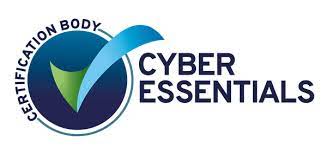So what is covered?
‘Qualifying tips, gratuities and service charges’ means:
- employer-received tips; and
- worker-received tips which are subject to employer control or are connected with any other worker-received tips which are subject to employer control.
How tips, etc. must be dealt with
The basic rule is that an employer must ensure that the total amount of the qualifying tips, gratuities and service charges paid at the employer’s place of business is allocated fairly between workers of the employer at that place of business.
Where a worker is allocated an amount of employer-received tips, that amount is payable to the worker by the employer.
Where the employer makes arrangements for the total amount of the relevant tips to be allocated between workers by an independent tronc operator and it is fair for the employer to make those arrangements, the employer is to be treated as having ensured that the total amount of the relevant tips is allocated fairly allocated between workers.
When tips, etc. must be dealt with
The employer must ensure that a qualifying tip, gratuity or service charge is allocated, and make any payment that the employer is required to make to a worker, no later than the end of the month following the month in which the tip, gratuity or service charge was paid by the customer.
There are special rules for agency workers.
Written policy
Where qualifying tips, gratuities and service charges are paid at, or are otherwise attributable to, a place of business of an employer on more than an occasional and exceptional basis, the employer must have a written policy on dealing with qualifying tips, gratuities and service charges for the place of business.
A written policy for a place of business must include the following information:
- whether the employer requires or encourages customers to pay tips, gratuities and service charges at the place of business; and
- how the employer ensures that all qualifying tips, gratuities and service charges paid at, or otherwise attributable to, the place of business are dealt with including how the employer allocates qualifying tips, gratuities and service charges between workers at the place of business.
Where an employer is required to have a written policy for a place of business, the employer must make the written policy available to all workers of the employer at the place of business.
Records
Where qualifying tips, gratuities and service charges are paid at, or are otherwise attributable to, a place of business of an employer on more than an occasional and exceptional basis, the employer must:
- create a record of how every qualifying tip, gratuity and service charge paid at, or otherwise attributable to, the place of business has been dealt with; and
- maintain that record for a period of three
years beginning with the date on which the
qualifying tip, gratuity or service charge was
paid.
There are also various new rules to deal with enforcement and the issuing of the Code of Practice referred to above. The Code of Practice can be accessed at https://www.gov.uk/government/publications/.
The way forward
Obviously, for certain businesses there is a lot to think about. If you would like to discuss these
changes further, please do not hesitate to get in touch.



